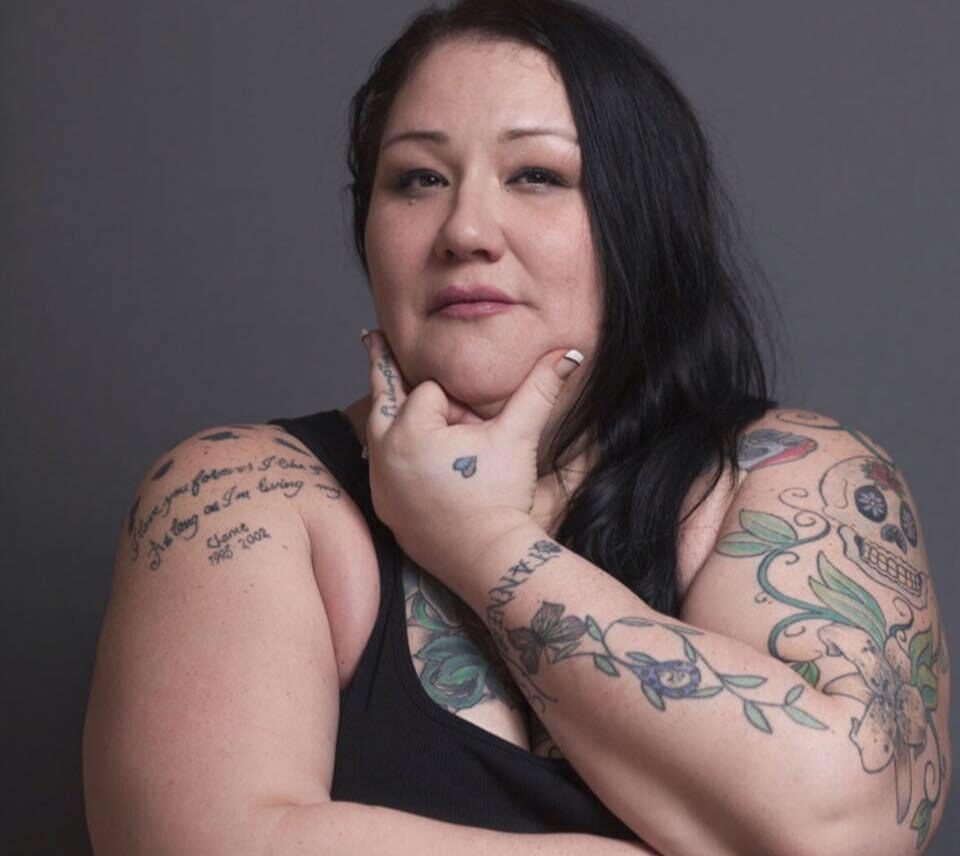My name is Wasaya Kwe. My English name is Bridget Perrier. I represent the many First Nations women and girls who are enslaved in prostitution or trafficked. I was born in Thunder Bay, Ontario and placed up for adoption. I was adopted by a good family who tried to raise me the best way possible, but as I got older the effects of colonialism, intergenerational trauma, and childhood sexual abuse made me a perfect candidate for prostitution.
I was lured and debased into prostitution at the age of 12 from a child welfare-run group home. I remained enslaved in prostitution for ten years. I was sold to men who felt privileged to steal my innocence and invade my body. I was paraded like cattle in front of men who were able to purchase me, and the things that we done to me were something no little girl should ever have to endure here in Canada, the land of the free.
Because of the men, I cannot have a child normally, because of trauma towards my cervix. Also, still to this day I have nightmares, and sometimes I sleep with the lights on. My trauma is deep, and I sometimes feel as though I’m frozen—or even worse, I feel damaged and not worthy. I was traded in legal establishments, street corners, and strip clubs. I even had a few trips across the Great Lakes servicing shipmen at the age of 13.
The scariest thing that happened to me was being held captive for a period of 43 hours and raped and tortured repeatedly at 14 years of age by a sexual predator who preyed on exploited girls. My exploiters made a lot of money and tried to break me, but I fought for my life. My first pimp was a woman who owned a legal brothel, where I was groomed to say that I was her daughter’s friend if the police ever asked.
My second pimp was introduced to me when I was in Toronto. I had to prostitute for money. He was supposed to be a bodyguard, but that turned out to be one big lie. Both are out there still, doing the same thing to more little girls somewhere here in Canada.
I was able to exit prostitution and rebuild my life, and with that my education became a tool. I was recognized for my tenacity and my strength and have been able now to be an asset to my community and to my people. I am a mother, activist, and warrior woman, and now my experience may be sacrificial at times, but I am doing it for Canada’s First Nations women and girls who are being bought and sold and are missing or murdered.
We must look at who is doing this. It’s the men. I believe that prostitution is not a choice, but that it’s lack of choice that keeps women and girls enslaved. I believe everyone should be shown a viable way out of the sex trade and not be encouraged to stay in it. I believe in helping people understand the full price of prostitution before they become involved and in helping women get out alive with their minds, bodies, and lives intact. We have been collectively afraid, raped, beaten, sold, discarded. Most of us were also children who were forgotten, neglected, abused, used, led astray, abandoned, and not protected.
I supported my daughter throughout the Vancouver BC missing women inquiry, and the outcome of it was this: our mothers, sisters, and daughters are not born to be used and sold for men’s sexual needs. We are not commodities. Our women are sacred. They are valued and loved, and as life givers and nurturers, we are equal.
I applaud Canada for recognizing the inherent dangers and abuses for those who are prostituted. This is a victory for survivors and those who are stuck in the vicious cycle of indignity and pain.
Chi-miigwetch.

